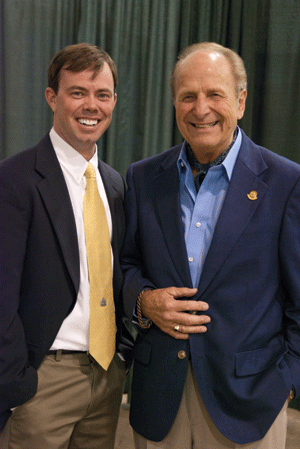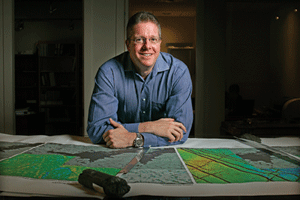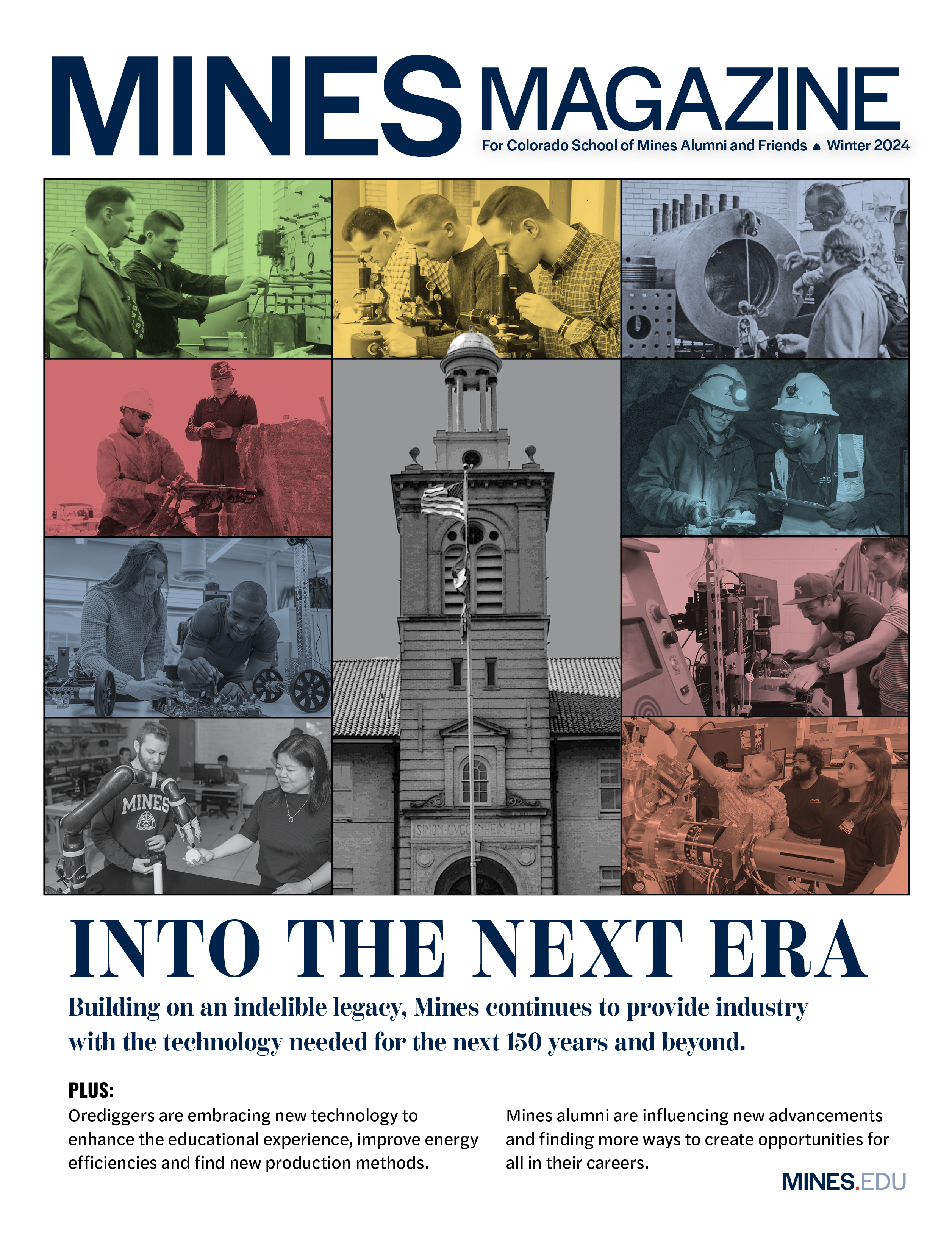 Stewart Chuber ’52 worked in the oil and gas field for 10 years before he found a mentor. When he did, he benefited immensely, and went on to flourish: With a PhD from Stanford University, Chuber has held senior positions in a number of oil and gas companies, lectured around the country, and since 1978, owned and operated Texas-based Fayette Exploration Company.
Stewart Chuber ’52 worked in the oil and gas field for 10 years before he found a mentor. When he did, he benefited immensely, and went on to flourish: With a PhD from Stanford University, Chuber has held senior positions in a number of oil and gas companies, lectured around the country, and since 1978, owned and operated Texas-based Fayette Exploration Company.
Chuber believes mentorship is the most important thing a young guy new to the business needs. So, when he learned about the creation of a Geoscience Boot Camp in which freshly minted geologists and geophysicists would spend 12 weeks honing their field skills under the tutelage of seasoned instructors and mentors, Chuber was intrigued.
“I knew this would shorten the time it took for a new geologist to go from a beginner to a producer of prospects,” he said. “And I figured anyone graduating from Mines or Stanford would appreciate this type of mentoring.”
So last year, Chuber set up a scholarship for the program through the American Association of Petroleum Geologists, specifically for a graduate of either of his alma maters.
Five thousand miles away, Joe Dumesnil MS ’07 was just finishing up his second master’s degree at the Institut Francais du Petrole in Paris, France. He was enrolled in a joint Mines-IFP degree program in mineral economics and international petroleum business management.
It was the alumni association that put the two in contact with one another. “I didn’t know Joe, but I read his resume. He seemed like a real self-starter,” Chuber says. Dumesnil eagerly accepted the scholarship, arriving in Houston in August 2008 to begin what is formally called the Geoscience Subsurface Interpretation and Mapping Certification Program.
Put together by a company based in Houston called Subsurface Consultants and Associates, the three-month course acquaints new professionals with basic geological and geophysical interpretation skills, something managers in the industry (ironically) find lacking among today’s computer-savvy recruits. Dumesnil was one of seven participants in the program. Following six weeks of technical coursework, boot camp participants spent another six weeks applying their newly honed skills to real-life oil and gas projects.
“We were given a bunch of data to sort through to generate a prospect, develop a plan and determine where to go next,” says Dumesnil. In retrospect, he said the program “was the catalyst for jump-starting the next phase of my career.” When asked how frequently he uses what he learned in the program now that he’s a log analyst/petrophysicist for Halliburton, he says, “Daily! Hourly! Minute-ly!”
Benefactor and recipient hit it off when Chuber visited boot camp, and the two have remained in touch since the program ended in November. “I told Dr. Chuber I can’t thank him enough,” said Dumesnil. “I hope I’m given the opportunity to pay it forward someday.”
He may well have that opportunity: “Joe’s a guy who’s probably going far in the oil business,” says Chuber. Thanks to some networking and a generous alumnus, he might get there a little faster.



